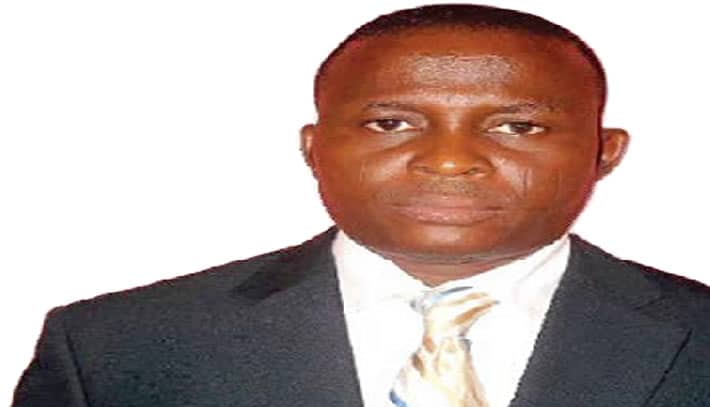Adelani Adedeji, Managing Director and Chief Executive Officer of Aceline Brokers Limited, thinks innovation is necessary to increase penetration in the insurance industry. FELIX OLOYEDE discusses pressing concerns in the sector in this interview.
To enhance market penetration and acceptance of insurance in Nigeria, the insurance sector must embrace innovation and technology in its operations. The insurance sector must completely embrace technology in order to expand coverage if it is to remain relevant in the contemporary corporate environment.
To better customer service delivery, the current analog methods must be abandoned. The use of digital assets will aid in the penetration of and awareness-building for insurance in Nigeria.
How can insurance companies advertise insurance online?

Nowadays, businesses would struggle to survive without technology. The insurance sector is not unique in any manner. New technologies play a critical role in advancing the insurance sector.
Industries that provide financial services have embraced digitalization in how they deliver their services. Insurance companies are not excluded from this either.
Insurance companies are required to market insurance digitally by providing online tools and platforms that employ technology to provide customers individualized and effective insurance services while also streamlining operations.
To develop a system where pricing, risk assessment, and claims management are done using open connected software platforms, insurance companies and ICT businesses should collaborate.
This is certainly commendable. It’s a positive progression. That is a sign that naval operations in Nigeria’s maritime domain have improved, and the country’s sea routes have improved security structures.
The announcement would allay current security concerns and attacks, such as piracy, which were commonplace in the past until the Nigerian Navy defeated piracy in the nation’s sea lanes and maritime domain.
In industrialized economies, insurance firms frequently outsize banks in size. Why is Nigeria experiencing the opposite?
The banking and insurance sectors, which are a part of the Nigerian financial system, are crucial to the economy of that nation. Unlike commercial banks, insurance businesses are thought to provide a very small contribution to economic expansion.
The country’s generally unfavorable economy, which has impacted the investment portfolio of the insurance companies, is the main obstacle responsible for this. The primary goals of these investments—government securities, shares, stocks, and bonds—held by the majority of insurance firms are safety, liquidity, and growth.
To make the best investment decisions, insurance companies must take into account a variety of economic factors and be sensitive to the foundations of the economy. The government must sincerely work to foster an atmosphere that is favorable to insurance businesses in order for them to flourish and improve the effectiveness of their business operations.

As we know that short-term investments yield lower returns, insurance companies are reluctant to invest premiums in long-term investments due to concerns about high inflation and fiscal irresponsibility.
If this trend were to continue, insurance companies would not be able to contribute to the country’s economic growth, which would also have an impact on the growth of the insurance industry.Another issue affecting insurance firms in Nigeria is inadequate access to information technology.
Many businesses in the insurance sector still lack completely automated and/or integrated computer software systems, while living in a world where information technology seems to control everything.
The problem in this situation is that the document management system is subpar in comparison to other economic sectors.In the sector, manual services are still frequently used, which causes delays in the resolution of claims as well as inaccuracies and errors throughout the process.
In 2022, there was a surge in gross premium income and penetration in the insurance market as a result of technology adoption and consumer confidence. Technology adoption improves data gathering and customer experience as well as product delivery.
What factors influenced the performance of the sector in 2022?
As was already indicated, one of the key factors influencing the performance of the insurance business in 2022 was the adoption of technology. By the transition from a manual to a digital style of operation, there was a significant shift to a new terrain.
The sector has been forced to adopt digital tools/models as a result of the COVID-19 pandemic epidemic. Insurance firms can now sell insurance through USSD platforms, virtual assistants, and other channels that enhance consumer experiences thanks to technology and partnerships with internet companies.
In Nigeria, a large number of insurance providers switched from traditional marketing to digital marketing. The performance of the insurance sector in 2022 was also driven by customer confidence. Any insurer now faces a very high risk of facing appropriate sanctions from NAICOM if they knowingly reject or dismiss a valid claim.
How would you rate the nation’s health insurance program since it was implemented?
In Nigeria, health insurance is a relatively new concept. Every Nigerian would find this product to be very helpful. In the nation, it has begun to acquire some ground. Thus, I would conclude that it has done well.

Since the introduction of the health insurance program, millions of Nigerians have had easy access to healthcare, which has decreased out-of-pocket costs for high-quality healthcare services. National health insurance’s goal is to provide easy access to healthcare at an affordable cost.
The anticipated growth rate hasn’t yet materialized, though. In order to educate the populace and pertinent groups about the benefits of the program, public awareness campaigns must be strengthened.
The benefits of the program should be thoroughly publicized so that both the formal and informal sectors may comprehend them and support them.
NAICOM would require a valid justification before suspending an insurance company’s license. Due to operational problems, it cancelled the licenses of those companies.
This was essential to sanitize the market, restore the public’s confidence in insurance, and act as a disincentive to other insurance providers. It is crucial to note, however, that NAICOM is not always out to swing its big stick until the activities of the insurance firms concerned may harm the interest of the stakeholders.
Last year, the industry’s regulator increased the price of third-party auto insurance by 200%. What kind of effects would it have on the sector?
Given the country’s present economic situation, the 19-year gap since the last rate review for automobile insurance, it is long overdue. It is a positive development for the sector, in my opinion.
It is anticipated that as a result of this development, insurance companies would be able to enhance their capital bases, contribute more to the nation’s GDP, and provide motor insurance policyholders with better advantages. Genuine policy holders who drive on public roads are entitled to prompt compensation.
What do you think of the microinsurance program?
Microinsurance is a type of insurance that is created specifically to satisfy the needs of low-income people at a reasonable price. Low-income people are found to be the least protected while also being the most vulnerable to risk.
They typically suffer financial hardship when the unexpected happens, necessitating the purchase of micro-insurance. I’d say that in Nigeria, micro-insurance is still relatively unpopular and unaccepted.
This may be due to the general public’s lack of knowledge of the advantages of microinsurance. Also, the business has not increased its efforts to create items that are specifically tailored for people with modest incomes.
What areas of the economy should the new administration focus on?
In recent years, the nation’s economy has suffered greatly. The notion that the global economy has not fared any better is also a possibility. Yet, the new leadership in Nigeria is fortunate since the issues are so obvious that even the blind can easily identify them.
The new government’s first priority appears to be ensuring the safety of people and their property. An expedient remedy for the monetary policy that has brought the economy to its knees will come right after that.
In conclusion, a speedy resolution to the ongoing fuel issue will be extremely beneficial to Nigeria’s economy and population. After these urgent issues have been resolved, real work may be done on the power sector, specifically on the generation and distribution of electricity.
Source: Punch











